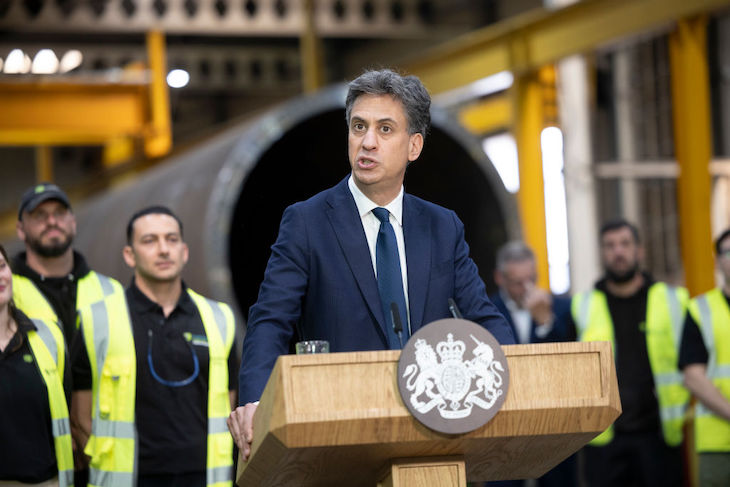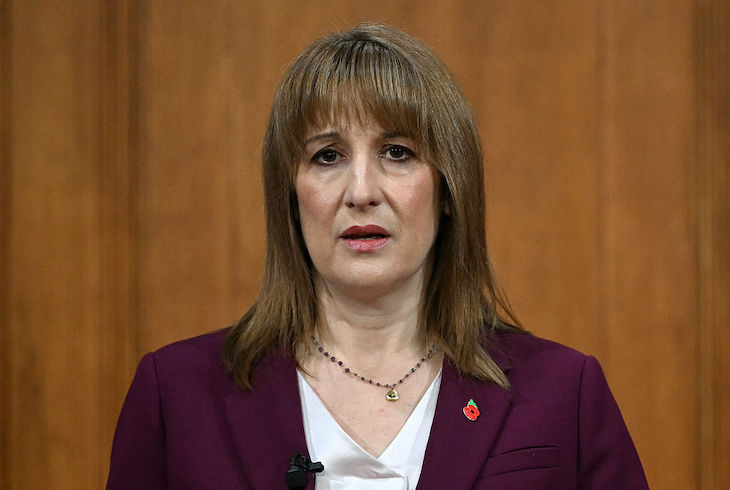Donald Trump has withdrawn the United States from the Paris Climate Change Agreement for the second time and reiterated his desire that America should ‘drill, baby drill’. The US president’s decision exposes the naivety of MPs in Britain who, in 2019, nodded through a legal commitment to reaching net zero by 2050, with the hope that it would inspire other countries to follow our example.
The Climate and Nature Bill risks taking Britain back to the dark ages
In fact, Britain is pretty well alone in voluntarily choosing to ‘leave it in the ground’, as anti-fossil fuel activists like to put it. The US has been following an unashamed policy of achieving national energy security through exploitation of fossil fuels for the past two decades, whoever has been in the White House – and we can be thankful for that because we, too, are increasingly relying of imports of liquified natural gas (LNG) from the US. Most other countries with significant oil and gas reserves are doing the same: exploiting them to the full, whatever platitudes their leaders may utter at Cop summits.
This seems the opportune time, then, for MPs to double down and demand that Britain sets itself an even tougher net zero target. Never mind that we are close to losing our primary steel industry, much of our chemicals industry and risk losing pretty well the rest of our car industry, sacrificed on the high altar of net zero targets, today the Commons will debate something called the Climate and Nature Bill – which would have severe consequences for the UK economy, and for living standards, were it to be passed.
This is a private members’ bill which has little chance of becoming law in the absence of government support, and the government has not yet shown any inclination to support it. Nevertheless, it demands to be taken seriously, because its backers are already claiming the support of 195 MPs, including 90 Labour MPs. Among them, although he is reported to have been ordered to steer clear, is Chief Secretary to the Treasury Darren Jones. The bill was originally promoted by Caroline Lucas, which is never a good sign, but at first sight it seems reasonably innocuous. It is not.
The bill seeks to turn the government’s ‘Nationally Determined Contributions’ (NDCs) under the Paris Agreement into legally-binding commitments. Given that Energy Secretary Ed Miliband last October set an NDC of reducing Britain’s carbon emissions by 81 per cent – relative to a 1990 baseline – by 2035 this would establish a much more immediate target than the net zero commitment laid out in the Climate Change Act. Moreover, the bill demands that the UK reduce the carbon emissions embedded in imports by a similar proportion. So, for the first time, we would be under a legally-binding commitment to reduce our overall carbon footprint by 81 per cent by 2035, from 1990 levels.
There is good logic in measuring carbon emissions on a consumption, rather than a territorial, basis. What the government does at the moment, only counting territorial emissions, gives it a perverse incentive to offshore our remaining industry and agriculture so that that its emissions can be counted on other countries’ carbon budgets – while doing nothing whatsoever to help the planet.
However, the new demand would place impossible conditions on importers. For many countries, data on carbon emissions, product by product, are highly unlikely to be available, so importers simply won’t be able to conform to compliance demands. But even where data is available, the chances of obtaining zero carbon products by 2035 is pretty slim. We may have removed steel emissions from our own carbon figures by closing down our primary steel industry, but that doesn’t mean we will be able to buy carbon-free steel from anywhere else in the world by 2035. The same goes for chemicals, fertilisers, foods and many other products. Unless the rest of the world progresses towards net zero at the same rate as Miliband is determined to make Britain do – which is highly unlikely – we are going to be stuffed. We may not be able to import certain foods.
But the promoters of the bill really want to go further. The original version published last May went demanded that the UK’s total carbon emissions be limited “to no more than its proportionate share of the remaining global carbon budget”.
For those not up with climate activists’ terminology, ‘the remaining global carbon budget’ means the maximum emissions which could still be emitted while still meeting the target of limiting global warming to 1.5 Celsius above ‘pre-industrial levels’ – i.e. the temperature which the Earth happened to be around the year 1850. The global carbon budget is arrived at, needless to say, through crude modelling. Yet it is taken as gospel by climate activists who appear to have little idea of the uncertainties involved in such calculations; it is ‘science’, they reason, and therefore must be the truth.
But let’s leave that aside. The text of that version of the bill went on to define the remaining global carbon budget as 400 billion tonnes. What would Britain’s ‘proportionate share’ of this be? The bill doesn’t make it clear what it means by this, but if you are going to calculate it on the basis of current population rather than – as some activists would like to do – on the basis of a country’s historic carbon emissions, it would mean the UK (which has 0.84 per cent of the world’s population) being limited to a further 3.36 billion tonnes. Britain could be restricted from being allowed to emit any more than that. Given that UK territorial emissions in 2023 were 384 million tonnes the ‘budget’ is equivalent to just over eight and a half years’ worth. Calculate UK emissions on a consumption basis – which were 487 million tonnes in 2023 – and it would allow us only 6.9 years’ of emissions at current rates.
The Climate and Nature Bill really does risk taking Britain back to the dark ages – quite literally. It is up there with Extinction Rebellion, which originally demanded Britain achieve net zero by 2025 – i.e. now. It is deeply disturbing that so many MPs appear to be prepared to vote for such a future. Ignorance about the consequences of net zero continue to run shockingly deep among our elected representatives.








Comments